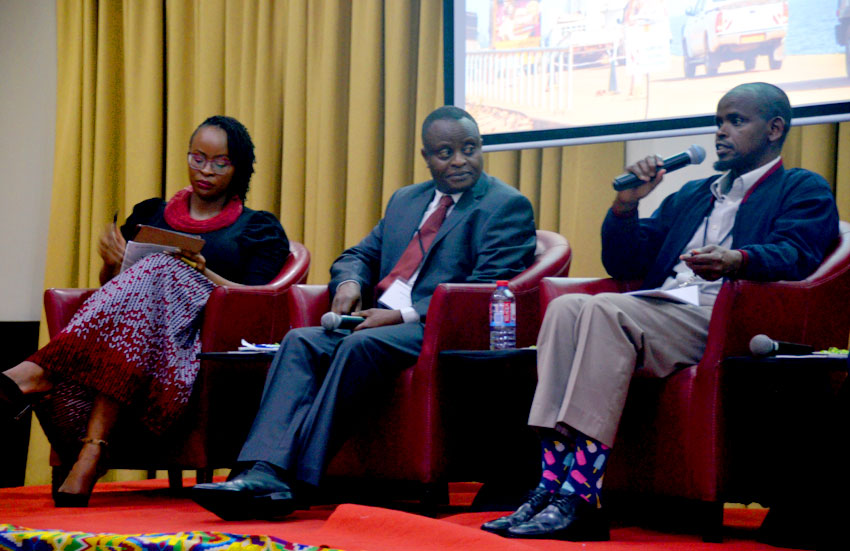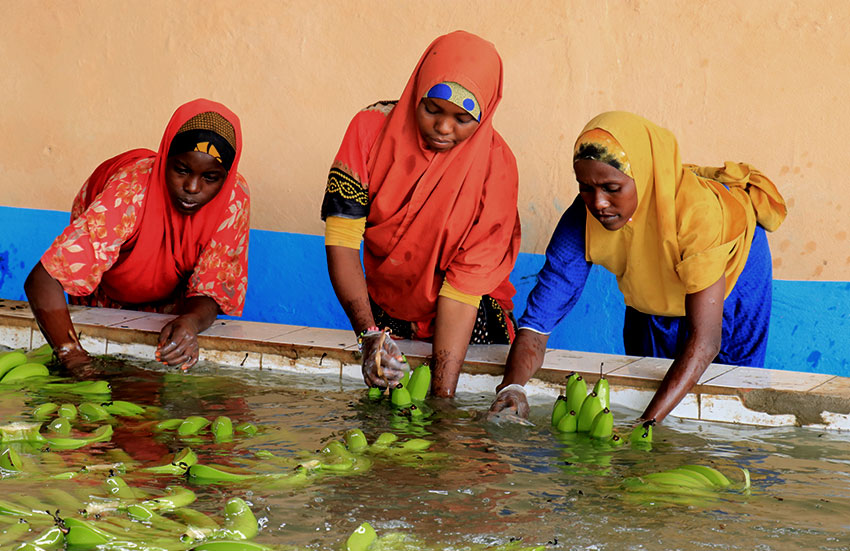Texas A&M Faculty Members Testing Sanitary Good Regulatory Practices Toolkit In Africa

Dr. Nicola L. Ritter, an instructional associate professor at the Texas A&M School of Veterinary Medicine & Biomedical Sciences (VMBS) and director for the Center for Educational Technologies (CET), and Dr. Molly Gonzales, a VMBS research assistant professor, have been awarded a supplement to their existing five-year, $1 million grant titled “Improvement and Maintenance of Sanitary and Phytosanitary Distance Learning and Knowledge Management Platforms.”
An additional $400,000 was added to pilot test a Sanitary & Phytosanitary Standards (SPS) Good Regulatory Practices (GRP) Toolkit in African countries, including Zambia, Nigeria, Botswana, and Malawi. These countries have experienced droughts and famine over the past few years, creating food shortages and long-term food insecurity.
Implementing this toolkit is expected to support these nations’ food supply chains and create new trade agreements between these African countries, making them less reliant on countries farther away geographically and dealing with political unrest and economic instability.
GRPs are the processes and tools to help improve the quality and effectiveness of SPS measures without creating unnecessary barriers to trade.
This project will also support further uptake of the Food Safety for Food Security’s (FS4FS’s) SPS distance learning modules, which seek to educate the global community on methods for modernizing and improving food safety regulatory systems around the world.

More than 175 hours of on-demand training are currently available online through 23 interactive course modules available in Dari, English, French, Russian, and Spanish to address the World Trade Organization’s SPS Agreement, as well as a variety of SPS topics across plant health, animal health, and food safety.
To date, the site has trained 15,000 users from 175 countries. If you are interested in training your organization with these resources, contact the CET at cet@cvm.tamu.edu or visit www.tamucet.org/work/sps/ to learn more about the impact of the program and its benefits.
“This training program was created with the support of Texas A&M University’s Center for Educational Technologies,” Ritter said. “The Center for Educational Technologies (CET) specializes in developing education programs, training, and outreach activities that complement technical experts’ research activities.
“Our external sponsors requested that our research team disseminate findings through education and outreach programs,” she said. “This is where the CETs stepped in for us. By partnering with the CET, Dr. Gonzales and I were able to focus on the technical component, while the CET team translated our research into training programs and disseminated findings to the general public. We could not have gotten this supplement without the CET.”
In addition to Food Safety for Food Security, Ritter and Gonzales are collaborating with the United States Department of Agriculture’s Foreign Agricultural Service, the U.S. Agency for International Development, and the U.S. Food and Drug Administration on this research project.


